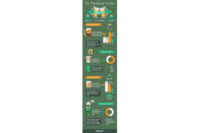Supplementing what demographics are missing
Fortification provides access to vitamins and minerals


Welch’s offers the Essentials line of juices that contain added calcium and vitamins C and D.








The last year has shown growth in new product releases that target the adult portion of the population, according to data from Chicago-based Mintel’s Global New Products Database (GNPD). In 2010, one non-alcohol beverage launched in the United States with a female demographic-specific claim, but Mintel GNPD data shows the figure increased to 12 non-alcohol beverages introduced specifically for females through Oct. 25, 2011. For men, Mintel GNPD data show that four new non-alcohol beverages launched with a male demographic claim through Oct. 25, which establishes the market niche considering that no products were launched citing a male target in 2010.
In 2010, 67 new beverages were introduced in the United States market that had a demographic claim for children ages 5 to 12. Through Oct. 25, 2011, 45 beverages were released targeting the youth demographic.
“People prefer to utilize food and beverages as a source of nutrients versus supplements,” says Holly Petty, senior product innovation scientist at Glanbia Nutritionals, Carlsbad, Calif. “In addition to relatively conservative vitamins and minerals, consumer trends also show a preferred incorporation of functional ingredients that are considered ‘natural.’”
Vitamin and mineral fortification is a growing claim among products, according to data cited by Lynn Dornblaser, director of consumer product goods (CPG) trend insight at Mintel, during the company’s “2012 North American CPG Trend Predictions” webinar last month. As the more generic “natural” and “organic” terminology took a dip in the last year, data from Mintel’s GNPD shows that products making a claim on vitamin and mineral fortification have shown a slight increase.
Beverages also provide opportunities in terms of formulation, explains Sam Wright IV, chief executive officer of The Wright Group, Crowley, La.
“Beverages in particular have benefited because they are very good vehicles for supplementary nutrition,” Wright says. “Formulators are able to use sweetening and flavoring systems to mask unpleasant flavors and odors more easily than with other food products. Value-added ingredients such as micronized powders, micro-emulsions and water-dispersible forms of fat-soluble nutrients and minerals have made new beverage formulations possible.”
However convenient the format might be for formulation and consumption, beverage-makers must keep in mind the importance of the amount of vitamins and minerals, notes Ram Chaudhari, senior executive vice president and chief scientific officer for Fortitech, Schenectady, N.J.
“Moderation is the key here,” Chaudhari says. “You can’t have the 100 percent recommended dietary allowance in every serving; it’s not going to work, unfortunately, and at the same time, it’s not necessary. Twenty-five to 35 percent or even 10 to 15 percent [of the recommended daily value should be used] because you’re going to eat some other kind of product, too.”
Common denominators
Although certain demographics require specialized options, Glanbia Nutritionals’ Petty notes that some health requests transcend demographics. Between men and women, she cites cognitive health, stress, overall mood and heart health as overlapping health conditions. A growing trend toward blood glucose and carbohydrate metabolism control can be addressed with chromium and natural ingredients such as green coffee bean, Petty says. In addition, both men and women are looking for exterior benefits.
“Beauty from within is also gaining popularity, and various ingredients can ideally promote this category: biotin, vitamin A, vitamin C, vitamin E, green and white tea, and pre- and probiotics,” Petty says.
Fortitech’s Chaudhari says that energy has consistent benefits for all groups.
“B complex vitamins are common in almost all of the demographic population categories,” he says. “Having said that, you cannot add all of them in all of the products because of the [formulation] challenges. There are eight B complex vitamins there: B1, B2, B3, B5, B6, B12, folic acid and biotin. You don’t have to have all of them in the same product or all the products; you can choose a few of them just to have the energy-boosting property.”
Formulation challenges tend not to be an issue when vitamins are added at 10 to 20 percent of the recommended daily value, explains Gus Castro, senior technical marketing manager for DSM, Parsippany, N.J. However, at elevated levels such as 50 to 100 percent of the recommended value, flavoring might be an issue, Castro explains. At its Nutrition Innovation Center, DSM can provide comprehensive, personalized technical support for customers to develop functional beverages that offer optimal nutrition, color, flavor, stability and consistency, he explains. The facility also offers hot-fill, aseptic and carbonated beverage processing as well as can, glass and PET filling.
To ensure a formulation lasts during shelf-life, custom nutrient premix manufacturer Fortitech monitors the performance of formulations through time. “We monitor [formulations] throughout the shelf life, which is very important because if [those products] don’t have those nutrients left, say, vitamin C, vitamin E or beta-carotene at the end of the shelf life, what good is it going to do? Nothing,” Chaudhari explains.
Glanbia Nutritionals is able to incorporate various micronutrient forms with coatings, activities, ‘natural’ status and functionalities depending on the beverage’s base, Petty says.
The Wright Group uses its SuperCoat brand of microencapsulated ingredients that mask unpleasant odors and taste, make oil-soluble ingredients dispersible in liquid systems, stabilize volatile ingredients, protect against ingredient interactions and improve solubility, Wright says.
AIDP Inc., City of Industry, Calif., offers a patented, proprietary encapsulation process called EnVantec that delivers stable, soluble and non-cloudy vitamin solutions for beverage manufacturers, explains Kathy Lund, director of business develop-ment and marketing for AIDP. EnVantec can be used for customer formulations, but also comes in specific vitamin A and vitamin D3 formats, she says.
Solutions for men’s health
Men seek health solutions that they can manage by themselves to help maintain their traditional independence, while addressing their modern lifestyle, says Caroline Brons, senior marketing manager for human nutrition and health for DSM.
Key health concerns for men include cardiovascular health, physical and mental performance, appearance, and reproductive health, Brons says. Within vitamins and minerals, she recommends vitamins A, B6, B12, D, E, folic acid and biotin, along with minerals and carotenoids. Fortitech’s Chaudhari also highlights classical nutrients, such as iron, zinc, chromium and selenium, in addition to antioxidant protection from vitamins A, C and D for men’s health applications.
Glanbia Nutritionals’ Petty says men seek energy as well as exercise benefits either for recovery or consistent exercise performance. To address this physical need, she suggests formulating with B vitamins, protein, amino acids, alpha-glyceryl phosphoryl choline, phosphatidylserine, electrolytes and natural sources of sustained energy such as isomaltulose or fruit and grain dextrins.
At Supplyside West in October, BASF, Florham Park, N.J., offered a prototype beverage in line with its “Think Newtrition” platform. The “Speed Up” prototype includes LycoVit 10, beta-carotene, Xangold and vitamin E to contribute to heart, lung and prostate health, according to the company. An 8-ounce serving of the beverage provides 2 mg. of lutein esters, 2.5 mg. of lycopene and 2,500 IU vitamin A.
Fortitech’s Chaudhari also notes that lycopene has become a popular request for men’s health applications. Scientific studies on lycopene have shown benefits for prostate health, he says. DSM’s portfolio includes Redivivo lycopene for prostate health, Brons says.
Glanbia Nutrionals’ Petty also sees the demand for prostate health applications; she suggests vitamin D as an option in formulations targeting the health issue. Cardiovascular health also is a concern, she says, which can be addressed with phytosterols, grape seed extracts, B vitamins, isoflavones and chlorella.
The Wright Group notes that men’s health applications frequently address all of the above concerns.
“Men look primarily for energy, cardiovascular health and uniquely male concerns such as reproductive and prostate health,” Wright says. “The vitamins and minerals we would recommend for male-oriented beverages would be B vitamins for energy, especially pantothenic acid, an ATP precursor which provides energy to the body; thiamine; and niacin for heart health since it is one of the few ingredients which can raise HDL cholesterol. Vitamins B6, B12 and folic acid are also helpful in reducing the levels of homocysteine in the blood, which may be harmful to heart health.”
The company also suggests trace amounts of selenium and zinc for reproductive health benefits and magnesium to help maintain healthy blood pressure, according to Wright. The company also suggests CoQ-10, omega-3 fatty acids and carnitine for heart health.
DSM offers Life’s DHA, a vegetarian algal-based source of omega-3 fatty acids that have been shown in clinical studies to have cognitive, cardiovascular, ocular and immune health benefits, Brons says. For heart health formulations, DSM’s Fruitflow has been shown to contribute to healthy blood flow. Clinical studies show that Fruitflow contributes to normal platelet function by keeping blood platelets in a smooth state, Brons explains.
Glanbia Nutritionals’ Petty notes stress management, weight management and weight loss as popular demands for men. To offer relaxation or cognitive benefits, Glanbia Nutritionals suggests theanine, phosphatidylserine, electrolytes and alpha-glyceryl phoshoryl choline. The company also has a portfolio of weight loss ingredients, Petty says, including CLA, pine nut oil, grape seed extract, green coffee bean, Irvingia Gabonensis and vitamins B6 and B12.
Addressing cognitive health, AIDP Inc. offers the mineral compound Magtein, which is composed of magnesium L-threonate. Magtein is a cognitive health compound that passes through the blood-brain barrier to a greater degree than other forms of magnesium, Lund says. In published animal research, Magtein was shown to improve short- and long-term memory, the company says.
Women’s health formulations
Depending on what stage of life they’re in, DSM’s Brons notes that women have special dietary needs. “Each lifecycle stage carries with it health concerns and different nutrient requirements,” Brons says. “From a fast physical and emotional growth stage during adolescence to pregnancy and lactation during child-bearing years and later on menopause with an increase in age-related issues from declining estrogen levels, all require good nutritional support for optimal health.”
For women, calcium and vitamin D are necessary supplements to help with bone health, Fortitech’s Chaudhari says. Glanbia Nutritionals’ Petty also suggests magnesium, potassium, milk minerals, vitamin K, undenatured collagen and black yeast-derived glucan for bone and joint health applications. The Wright Group also notes the importance of bone health suggesting calcium and vitamin D as well as boron and vitamin K.
Corn Products, Westchester, Ill., and National Starch, Bridgewater, N.J., offer Aquamin, a seaweed-derived mineral source that is rich in calcium, magnesium and 74 trace minerals, including zinc, iron and selenium for bone and joint health benefits. Aquamin is available in various forms to allow for formulation in juice-based products, clear drinks and additional food and dietary supplement formats.
Women also often require ultra-trace minerals, including iron, zinc and chromium, Fortitech’s Chaudhari says. Iron can play a role in women’s request for energy, exercise and hydration, according to Glanbia Nutritionals’ Petty. Additional ingredients to address active concerns include protein, amino acids and B vitamins, she says.
The Wright Group notes the need for formulations that address stress management, for which it suggests B vitamins, in addition to other concerns, such as skin health and reproductive health. For skin health, Wright suggests pantothenic acid, vitamin E, biotin, astaxanthin and lycopene. Folic acid, DHA and vitamin B6 are noted for reproductive health benefits in women, he explains.
In addition to essential factors, Chaudhari says Fortitech also is receiving requests to add soy isoflavones or flavanoids to women’s health applications. The company also sees a demand for probiotics and prebiotics within the demographic, he explains.
In addition to Life’s DHA omega-3 fatty acids for women concerned with prenatal health and cardiovascular health, DSM’s portfolio also includes a range of ingredients that address key concerns, such as stress, beauty and weight management. The company also addresses cardiovascular health through vitamins B, D and E, as well as Fruitflow and ResVida resveratrol, Brons says.
For skin health, DSM offers vitamins C and E, B vitamins, Redivivo lycopene and FloraGlo lutein, which in a recent study showed significant increases in skin hydration and elasticity, according to Brons. The company’s vitamin D and calcium can be incorporated into formulations for post-menopausal women, who also are the target of its GeniVida genistein, an isoflavone developed by DSM that has been shown in studies to reduce hot flashes and night sweats, Brons says.
Weight maintenance and satiety is an added benefit that women might be seeking; formulations can include chromium, fiber, pine nut oil and green coffee bean, Glanbia Nutritionals’ Petty notes. In addition, fiber that provides satiety and regularity benefits and DSM’s patented lipid emulsion ingredient Fabuless for weight management applications are popular, Brons explains.
Providing the basics
To help the younger demographic, essentials are the key, says Glanbia Nutritionals’ Petty. “Parents are looking for a source of overall vitamins, minerals and antioxidants,” she says. “Nutrients for bone health, calcium and vitamin D are crucial. Sources of vitamin C and zinc also are requested for immunity benefits. Antioxidants are frequently requested, [such as] vitamins A, C and E. Vitamin and mineral deficiencies in children are quite frequent throughout the world and include iron, vitamin A and zinc.”
Fortitech’s Chaudhari says B vitamins are helpful to provide children with energy in addition to essential fortification options.
“Children are going constantly, so you’ve got to have energy in order for them to continue to have fun, whatever activity they are doing,” he says. “At the same time, of course, they are growing so they have to have some of the nutrients like calcium and vitamin D, vitamins A, C [and] E, zinc, and iron.”
DSM recommends a range of vitamins and minerals to support healthy development as well as specific fortifications for immune support, including vitamins A, C, D, B6, B12 and folic acid as well as minerals iron, zinc and selenium. Beta-carotene is recommended for vision benefits, along with FloraGlo lutein and Optisharp zeaxanthin that offer protective eye benefits, Brons says.
Bone health also is a concern for children, for which DSM recommends calcium, vitamins D, K, B6, B12 and folic acid, according to Brons. The company’s Life’s DHA and vitamins B1, B2 and B6 are available for brain health formulations, she adds.
For additional benefits, Glanbia Nutritionals’ Petty says fiber and probiotics are becoming popular to address digestive health in children. She also sees a demand for nutrients that promote healthy growth from a neuronal and organ function standpoint, including brain health.
The Wright Group highlights the convenience of the format for supplementing children’s health.
“Beverages are ideal as a way to deliver balanced nutrition to this group,” Wright says. “In addition to vitamins and minerals, we recommend DHA for brain development and carotenoids like beta-carotene, lutein and lycopene to make up for the shortfall in typical kids’ consumption of these critical nutrients.”
In terms of formulation options, Chaudhari sees a benefit in protein-based beverages for children to further extend the benefits. The Wright Group’s chief executive officer expands on this, noting that the consumption of fluid milk has decreased during the last few decades, which presents the necessity to supplement milk’s vitamin D, calcium, phosphorus and other nutrients, Wright says. BI
Looking for a reprint of this article?
From high-res PDFs to custom plaques, order your copy today!











